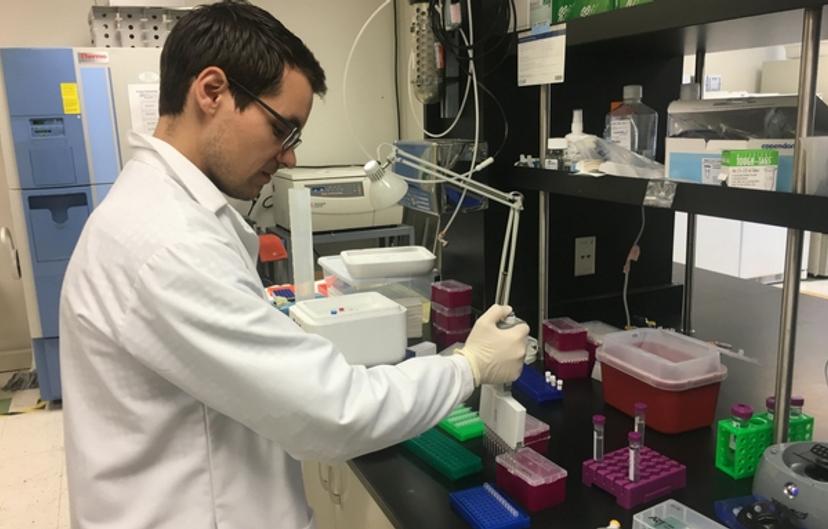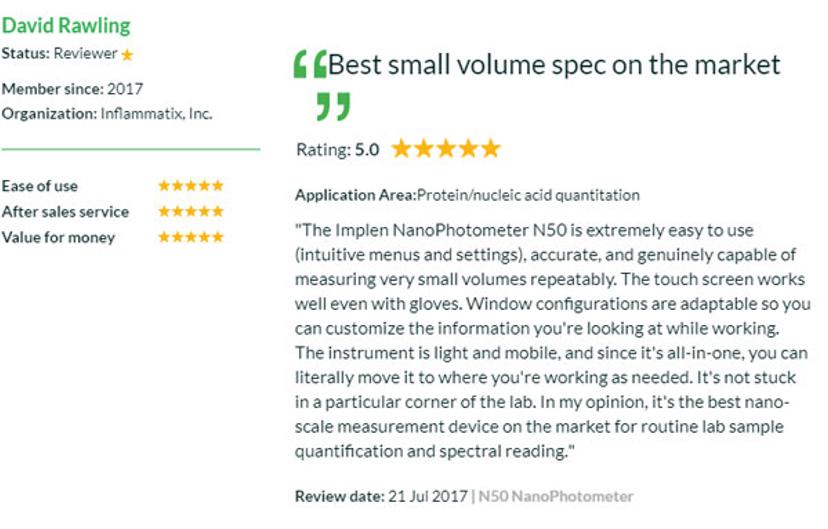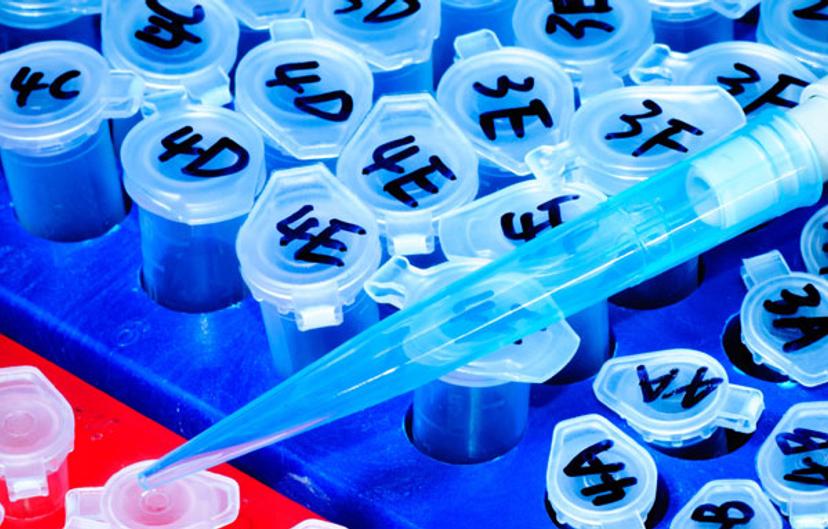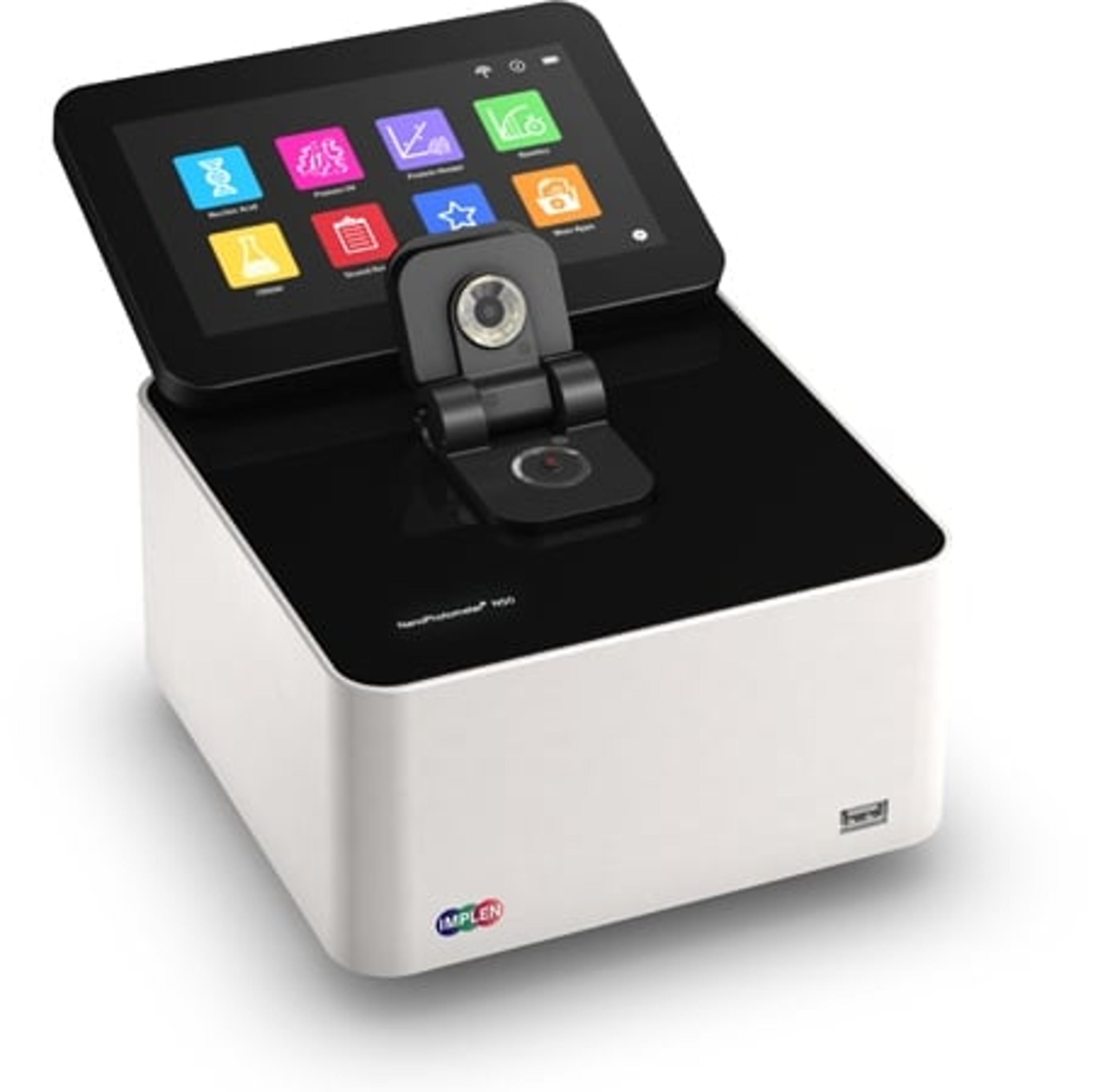Meet David, Principal Scientist at Inflammatix, Inc. and SelectScience Reviewer of the Month for September
David Rawling, PhD, discusses his work, his inspiration and his scientific heroes
10 Sept 2017

Inflammatix Inc. focuses on the development of new diagnostic tests for a wide range of diseases, including sepsis, transplant rejection, autoimmune and infectious disease. Here we meet David Rawling, a principal scientist at Inflammatix and our Reviewer of the Month for September.

What are you working on?
I’m currently working on assay development at an innovative diagnostics company called Inflammatix.
What inspired you to get into the world of science?
I have always been a very meticulous person and had a passion for getting things right in as precise a way as possible. As I explored different subjects of interest in high school and college, I began to recognize that science – and biochemistry in particular – offered a great opportunity to indulge my general curiosity while taking advantage of my predisposition to the logical and systematic pursuit of problems.
How did you get into your specific field of work?
After obtaining my bachelor's in biochemistry, I spent some time working in a structural biology lab before deciding to pursue a graduate degree. By the time I got to grad school, I had become fascinated with molecular mechanisms; how tiny protein and nucleic acid machines accomplished the tasks necessary to maintain our cells. I wrote my thesis on ribonucleoprotein machines, developing highly precise measurement techniques along the way. As I moved on from the academic world, I recognized that working in diagnostics would allow me to leverage my experience in biophysics and precision measurements in a translational setting, where the work I did would rapidly help patients in the real world.

Why are reviews important?
Anyone who has ever tried to outfit a lab, or determine how to make an important measurement, or tried to incorporate a new process into their workflow has had to deal with figuring out which piece of equipment is right for their application. Hearing from other people on the ground who are actually using the instrument on a daily basis is the single best way to learn about the pros and cons of a device, and to get a feel for whether or not it will fit into your setup/price point/space/etc.
Why is communication in science key?
If you don’t communicate what you learn, there’s no way for the world at large to build upon it. Communication in anything is key, but especially so in science, because there’s so much to learn and we can’t possibly learn it all without leaning on the discoveries of others. This is just as true for process development (equipment selection etc) as it is for major breakthroughs in basic research.

What’s your favourite piece of lab equipment?
My favorite piece of lab equipment is my multichannel pipette. I cannot overstate how much utility I’ve gotten out of my multichannels. These are the true heroes of my work stream.
Who is your hero in science and why?
My hero in science is probably my good friend and mentor Professor Dahai Luo, who has always demonstrated a keen understanding of what questions were important to ask and how to best answer them. His ability to see both the forest and the trees has always inspired me, and I constantly aspire to perform science with the clarity and precision he exhibits.

What’s the biggest story in science right now?
I guess the battles going on over the CRISPR technology; both in terms of the legal struggle for control of the IP, as well as the philosophical debate over the moral appropriateness of genetic modification.
Complete this sentence: In my lifetime, I’d like science to achieve...
Flying cars. I was promised flying cars.
If you'd like a chance to be Reviewer of the Month, write your review here.

